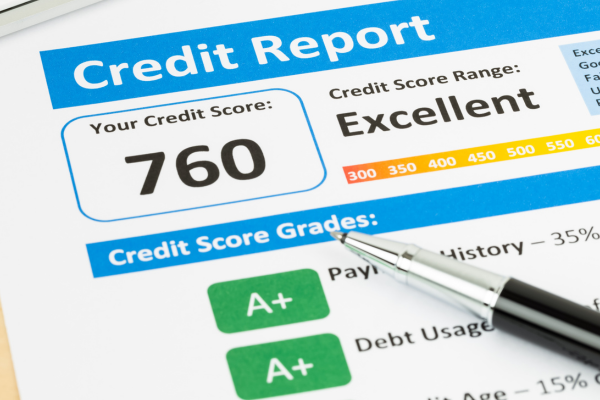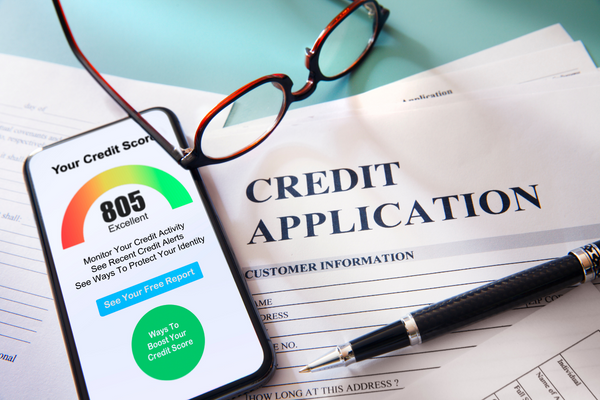Advice for New Immigrants: Building a Credit Record in Canada

Advertisement: Click here to learn how to Generate Art From Text
Many newcomers to Canada learn that they need credit in order to pay for large purchases, buy a vehicle, or buy a home. However, it’s difficult to borrow without a credit history in Canada. Canadian lenders typically check each applicant’s credit files at one of the main credit reporting agencies (Equifax Canada and TransUnion). This file is a kind of financial report card which tracks how much money you borrow and how quickly it’s paid back. It’s used to calculate your credit rating.
Newcomers without a credit record may need to have a co-signer who has a Canadian credit rating and substantial assets as collateral or they may be required to demonstrate a history in Canada of stable income. You can begin building your credit record as soon as you arrive. Build a credit historyCanada
Getting Started
The financial decisions that you make as soon as you arrive in Canada will have a major impact on your credit score and history. Credit can be a controversial topic when it comes to building your credit rating. On the one hand, credit is a great way to build your credit rating.
- Get low interest rates on credit cards, loans and other financial products
- Get approved for lines of credit
- Obtain certain jobs (i.e. Some finance-related jobs will require a credit test as a requirement of employment.
Credit can be a curse if it is not managed properly. It can haunt you and prevent you from taking advantage of financial opportunities. Creditors will run a credit report on you to determine if you’re a high-risk or low-risk borrower. Creditors will then decide whether or not to give you a credit or if they want to charge you more interest.
What is a credit history?
Your credit history tells lenders that you’re responsible in terms of paying your financial obligations. This could be your monthly rental, utility bills or loans. If you are from a country with credit bureaus, then you know the importance of a good credit history. In Canada, it is also important to keep a good history of credit.
We’ll share tips to help you build and maintain a healthy credit report. With a good credit history, you’ll be able to save money and enjoy greater financial freedom.
What is your credit rating when you arrive in Canada? Nothing. Imagine it like a blank page. Your credit rating will be affected by everything you do from now on.
Related Posts
Ten financial steps to take prior to leaving for Canada
What to do first after landing in Canada
Renting without a credit history
Banking and Finance in Canada – Your First Steps
You can start building your credit record and establishing a Canadian credit rating as soon as you arrive in Canada. Your credit rating or history begins the moment you receive a credit card in your name or a loan from a Canadian Bank. Start by obtaining a credit card and using it responsibly.
Even if you don’t have immediate plans to buy a house or vehicle, it’s a good idea to establish a credit history, since banks may give special consideration to recent newcomers.
In some cases, newcomers may be offered a ‘secured’ credit card. A secured card is different from a regular one because it requires that you pay a security deposit equivalent to the credit limit. Consider it a stepping-stone to obtaining an unsecured card. Later, it may be more difficult to get such special offers, especially if income doesn’t increase as quickly as you expected. A Credit cardIt is also useful when making larger purchases or as a secondary form of identification.
Why is your credit score important?
Your credit score is important in many ways.
- Lenders will check your credit score whenever you wish. Mortgage to purchase a homeThey want to understand your ability to manage credit, your ability pay off debt and your payment history. They want to know how you manage your credit, pay off your debt, and what your payment history is.
2. Before renting their property, landlords will check your credit score.
3. Some employers conduct a credit report before making an employment offer. This is a common practice for banks and financial institutions, such as insurers.
What is a good credit score?
Your credit score can fall between the range of 300 – 900. In general and depending on the model of credit score that your financial institution is using, a high score is greater than 680. As a benchmark, to get a mortgage to buy a house in Canada, you need a credit score between 600 – 700. If your score is less than 600, it’s important to take steps to raise it.
Use your credit card wisely to build a good credit score. This will give lenders confidence in your ability repay loans.
Your credit is scored on a point system that ranges from 300 – 900 points, where 900 is the best score. To qualify for a standard loan, it’s best if you score 650 points or higher. If your credit score is below 650, you will have difficulty getting a loan or receiving new credit. You can improve your credit score if you manage your credit carefully.
How much credit limit should I use?
Avoid using more than 30% (also known by the term balance-to-limit) of your credit limit.
How many credit cards am I allowed to have?
It’s best to start with only one until you are financially comfortable enough to afford more. Avoid opening too many credit cards. Lenders may be concerned if you have many credit cards, especially if there is a balance.
Why Credit History Is Important for Renting a Home in Canada

Your credit history will be one of the first things that landlords look at before renting to you. Your credit score will tell your landlord if you are reliable when it comes to repaying debts on schedule. A good score will show the landlord you are reliable and will likely pay rent on time. This is why landlords prefer to rent to tenants that can prove their reliability. In summary, landlords can use credit scores to determine who to rent a home to and whom to avoid.
This arrangement is ideal for landlords. However, it can pose a problem for newcomers that are looking to rent. If you’re a newcomer in Canada, it is likely that you don’t have a credit rating. It takes a minimum six months for a credit report to be established. Build a credit history. It can be difficult to convince a potential landlord that you are a reliable renter. You can still rent a home even if you don’t have a good credit rating.
How Can I Rent a House Without a Credit History?
You should first show your future landlord your bank account balance to prove that you are a responsible renter. This will let the landlord know that you are able to pay rent and will probably do so on time.
If you don’t have a good amount of savings, your top priority would probably be to secure a source of income. Once you’ve done this, you can provide proof of income to the landlord. This will also satisfy your landlord, as it shows that you are able to pay the rent each month.
Another way to rent a home without a good credit rating is by renting a house from a friend. Some landlords accept newcomers openly and reserve their houses, especially for them. These rentals can be small and not very ideal. These rentals are good if you’re looking for a place to live while you work on your credit score. These rental homes often have basic furniture such as beds and sofas, making it easier for newcomers.
While you wait, being dependable with your payments and paying your bills promptly is a great method to show lenders your financial responsibility. Over time, a good credit history will give you many financial advantages.
How can I maintain a positive credit history? Five Tips to Follow

1. Take advantage of your fresh start in Canada to build a good credit history
Use them wisely. Pay your monthly balance off and avoid going over. This will show potential lenders that you’re reliable.
If you pay your credit card balance in full each month, you will also save on interest. The average credit card interest is around 19%. This means that any balance you have on your card can quickly become expensive. But, if you don’t pay the balance in full each month, be aware of the interest rate charges.
If you can’t pay the full balance on your credit card, at least pay the minimum balance and make regular payments, to pay off debts as quickly as possible. But, avoid missing any payments. Missing payments can damage your credit score and make it difficult to get a future loan such as a car loan, or mortgage.
Cash advances made with your credit card are even more expensive. The interest rate will be higher and you’ll pay interest starting the day of the cash advance. There is no grace-period like for a normal credit card purchase.
2. The Small Print on Cancellation Penalties and Fees
You should not only pay your monthly bills on time but also be cautious when signing up for monthly subscriptions such as cable, phone, internet, gym memberships, etc. When you sign up for these services, make sure to check the cancellation fees and deadlines. These fees can be very high.
If you are unsure about anything in your contract, ask questions.
Keep track of your utility changes
When you move, don’t forget to cancel or transfer your services and utilities to your new address. Sometimes, final bills are sent to collections due to neglect and they appear on your credit report six years later. Keep track of any changes you make by noting the date, names of the agents and your case number. If you are given a refund receipt, keep it to prove cancellation.
4. Negotiate with your creditors a payment schedule if you hit a rough patch
If you have a bad patch, like a long period of unemployment, don’t be complacent with your credit. Negotiate your monthly payments with your creditors. They will be willing to assist you, as sending your outstanding accounts to collection would cost them more. You can save money by canceling or suspending services that you don’t need.
It’s wise to live within your financial means. As the saying goes, “It’s not how much you earn, it’s how much you spend.”
5. Use Services to Track Credit Histories and Maintain a Good Credit Report
Most banks, including Scotiabank, offer this service to account holders. Use free services such as Borrowell to monitor your credit. If you notice that your report shows outstanding payments you have paid, you should contact the reporting agency to remove this information.
What’s in Your Credit Report?

Credit reporting agencies, such as Equifax Canada and TransUnion Canada, record your credit history. Your credit report will include information about:
- Your credit report can list outstanding bills (for example, cell phone bills)
- Collections items, such as if a debt is sent to an agency for collection.
- Legal items (for instance, if you receive a court order for a debt that is not paid).
Collections items remain on your credit report six years and legal items for ten. So it’s essential to practice good financial habits that don’t jeopardize your credit rating.
Your credit rating tells lenders what kind of risk they take by lending you money. It takes a while to build credit history. Yet, it’s easy to sabotage and takes even longer to rebuild.
Can you live without credit? Yes. Should you try to live without it? No. You will not be able to improve your standard of living as quickly without credit. A strong credit rating is important when you are making major purchases, such as purchasing your first home in Canada. When you manage how you use credit, you’ll remain in good financial standing and be able to secure credit to achieve your important dreams.








